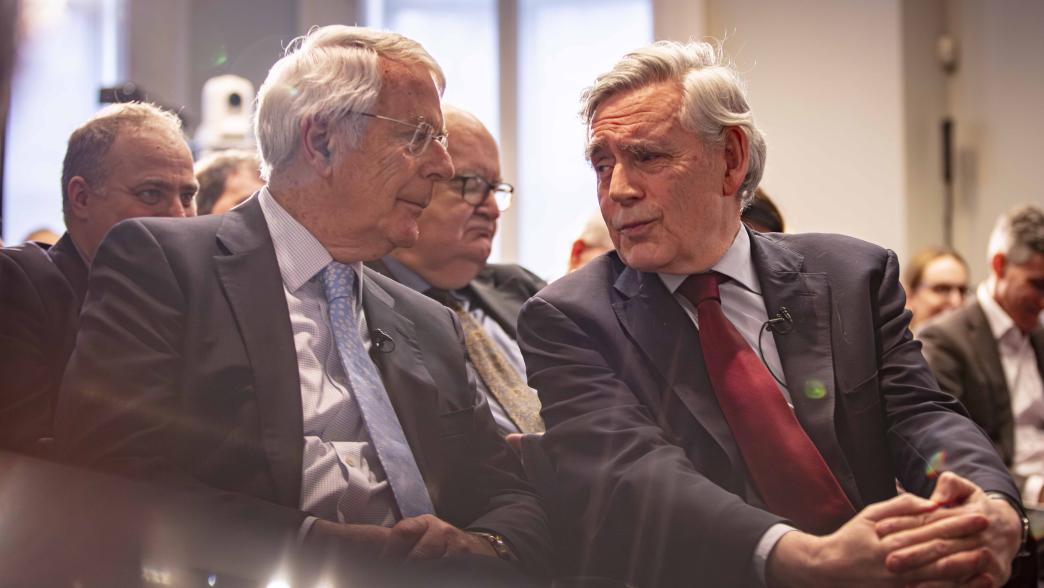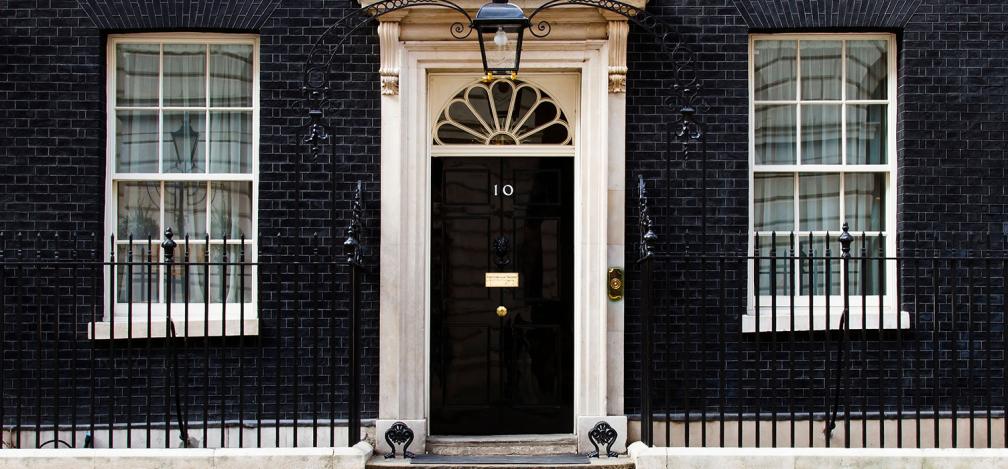There is emerging consensus about how to fix the broken centre of UK government
The centre of government is not fit for the challenges facing the UK.

Five days on from the launch of the Commission on the Centre of Government’s final report, Hannah White says the positive reaction – and support – that followed shows the widespread belief that it is time to change the centre.
Over the last year, as chair of the Institute’s Commission on the Centre of Government, I have spoken to hundreds of people about how the centre – No.10, the Cabinet Office and the Treasury – is functioning. Almost all have argued that the status quo is unsustainable, and that fundamental change is needed.
Which is why, when we launched our Commission’s final report on Monday – with the help of two former prime ministers – I was not surprised to hear widespread agreement with our analysis of the problems. No.10 is underpowered, particularly when it comes to economic and analytical capability. The Cabinet Office is too big and lacks a common purpose, with teams focused on the prime minister awkwardly bolted together with those working on civil service management. Prime ministers are not supported to set direction for the whole of government, which creates a vacuum filled by the Treasury. Budgets are allocated according to the Treasury’s fiscal priorities rather than the priorities of the government as a whole. The centre is too closed and lacks connection to the real world that voters inhabit.
Consensus is building around the Commission on the Centre of Government’s proposals
The recommendations set out in our final report have prompted a lively debate about how these problems should be solved. But we are struck by the level of consensus that is already emerging.
Although the two prime ministers who spoke at our launch did not endorse everything in the report, they supported many of our core proposals. Sir John Major said he “strongly agreed with the commission’s first principle of maximum delegation from the centre”. He also agreed with our proposal for a first secretary of state to oversee the progress of the government’s policy objectives and have ministerial responsibility for the civil service. Gordon Brown, meanwhile, endorsed our proposals for a civil service statute and agreed that splitting the roles of cabinet secretary and head of the civil service would recognise the different skillsets required to perform those two roles.
There is cross-party interest in the proposals: endorsements have flooded in from across the political spectrum – from Harriet Harman and Nick Clegg, to Steve Baker and Lord Kempsell (Boris Johnson’s former spokesperson). Alastair Campbell welcomed “very good thinking on how the workings of government can be improved” and Nick Boles hailed “compelling ideas about how to make the centre of government more effective and more accountable.” Even outgoing cabinet office permanent secretary Alex Chisholm, who spoke at an IfG event this week, has previously acknowledged that his heterogenous department can be “quite difficult to manage”.
Power with purpose: Final report of the Commission on the Centre of Government
No.10 and the Cabinet Office should be merged to form a new Department of the Prime Minister and Cabinet to enable more strategic control at the centre of government.
Read the report
Prime ministers should not be content with muddling through
Our recommendation to create an ‘Executive Cabinet Committee’ made up of a small number of key ministers to make the big strategic decisions has split opinion. The Times reports that Sir Keir Starmer is keen on the proposal. But Major and Brown felt that, while a smaller committee to discuss strategic matters would be helpful, formalising this arrangement would irritate excluded colleagues and undermine the (supposed) collegiality of cabinet.
We disagree. Politicians know that every prime minister makes the biggest decisions in small groups – Tony Blair in his “big guns” meetings, Gordon Brown with his horseshoe of advisers, David Cameron through the ‘Quad’ and Boris Johnson at a ‘strategy committee’. Sometimes the circle is even smaller. The budgets drawn up by chancellors receive no more than a rubber stamp sign-off from the cabinet. A proper forum would inject rigour into decisions that are too often taken informally. It would also mean that decisions were better informed and supported with prepared papers and shared information gathered by a proper secretariat. And it would bring the government in line with best practice in the private sector. A 2023 study found that the 150 largest FTSE companies had an average board size of 10 people, a third of the size of the cabinet.
While developing fresh thinking, we have also learned from history. The seminal 1918 Haldane report argued that the cabinet “should be small in number” and “be supplied in the most convenient form with all the information” needed to make decisions. Haldane recognised the importance of properly organised debate and discussion to set the government’s priorities – and so do we.
Ineffective government is not a constitutional safeguard
Some have worried that – in a British “elective dictatorship” – strengthening support for the PM by creating a Department of the Prime Minister and Cabinet could give them greater power which a bad actor could abuse. It is certainly true that prime ministers vary in character and approach.
But maintaining an ineffective system to mitigate a worst-case scenario is the wrong answer to a good question. A new Department of the Prime Minister and Cabinet is a recognition of the demands on the prime minister. The prime minister’s powers remain unaltered – they would simply be better supported in executing them. Effective prime ministerial leadership is essential when the UK faces daunting challenges – from stagnant economic growth and intractable regional inequalities to an ageing population, rapid technological change and the generational task of tackling climate change. Faith in democracy depends on the government’s ability to solve such challenges. For it to do that, the strategic vacuum at the heart of government needs to be filled, not ignored or defended as a constitutional safeguard.
We are also recommending a strengthened civil service – underpinned by a new statute to set its responsibilities and to improve its accountability. But the civil service is not a strong constitutional check or balance. In the UK, those come from parliament and the judiciary.
The right time for change is when the next government is formed
Our proposals are designed to be implemented at the start of a government’s term. With an election to be held within the next year, the start of the next parliament is the time fix the problems we have identified. The Commission’s final report has provided a blueprint for change and we will continue to advocate for our proposals with ministers, shadow ministers and civil servants. Whoever wins the next election – Keir Starmer’s Labour Party or a new Rishi Sunak-led Conservative government – should implement them without delay.
The challenges facing the UK are great, and the centre is not up to the task. Reform is essential and inaction is not an option.
Watch the key findings of the Commission's final report
- Political party
- Conservative Labour
- Position
- Prime minister Cabinet secretary Deputy prime minister Permanent secretary Chancellor of the Duchy of Lancaster Chancellor of the exchequer Leader of the opposition
- Administration
- Sunak government
- Department
- Number 10 Cabinet Office HM Treasury
- Public figures
- Rishi Sunak Keir Starmer Simon Case Jeremy Hunt Oliver Dowden Nick Clegg David Cameron John Major Gordon Brown Tony Blair Boris Johnson Liz Truss
- Publisher
- Institute for Government